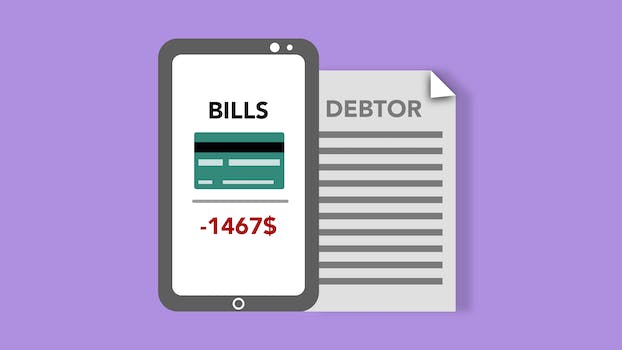How To Save Money Daily As A Student
Introduction

As a student, it can be challenging to save money while juggling the costs of tuition, textbooks, and living expenses. However, there are several ways to cut back on daily expenses and save money. In this article, we will discuss some practical tips on how to save money daily as a student.
Create a Budget Plan
As a student, it can be challenging to manage your finances. With tuition fees, textbooks, and living expenses, it can be easy to overspend and find yourself in debt. However, with a little bit of planning and discipline, you can save money daily and avoid financial stress.
The first step to saving money as a student is to create a budget plan. A budget plan is a financial plan that outlines your income and expenses. It helps you to track your spending and identify areas where you can cut back. To create a budget plan, you need to start by calculating your income. This includes any money you receive from your part-time job, scholarships, or allowances from your parents.
Once you have calculated your income, you need to identify your expenses. This includes your rent, utilities, groceries, transportation, and any other expenses you have. You can use a budgeting app or a spreadsheet to track your expenses. Be sure to include all your expenses, no matter how small they may seem.
Once you have identified your expenses, you need to categorize them into fixed and variable expenses. Fixed expenses are expenses that remain the same every month, such as rent and utilities. Variable expenses are expenses that vary from month to month, such as groceries and entertainment.
After categorizing your expenses, you need to prioritize them. This means identifying which expenses are essential and which ones are not. Essential expenses are expenses that you cannot do without, such as rent and groceries. Non-essential expenses are expenses that you can cut back on, such as entertainment and eating out.
Once you have prioritized your expenses, you need to create a spending plan. This means allocating your income to your expenses based on their priority. Start by allocating your income to your essential expenses, such as rent and groceries. Then allocate the remaining income to your non-essential expenses, such as entertainment and eating out.
To save money daily, you need to stick to your budget plan. This means avoiding impulse purchases and sticking to your spending plan. You can also save money by looking for ways to cut back on your expenses. For example, you can save money on groceries by buying in bulk or shopping at discount stores. You can also save money on transportation by using public transport or walking instead of driving.
Another way to save money daily is to look for ways to increase your income. This can include getting a part-time job, selling items you no longer need, or doing freelance work. By increasing your income, you can have more money to save or spend on non-essential expenses.
In conclusion, saving money as a student requires discipline and planning. By creating a budget plan, prioritizing your expenses, and sticking to your spending plan, you can save money daily and avoid financial stress. Remember to look for ways to cut back on your expenses and increase your income. With a little bit of effort, you can achieve your financial goals and enjoy a stress-free student life.
Cook Your Own Meals
As a student, it can be challenging to save money while juggling the demands of school, work, and social life. However, one of the easiest ways to cut down on expenses is by cooking your own meals. Not only is it cheaper than eating out or ordering in, but it’s also healthier and allows you to have more control over what you’re putting into your body.
Firstly, start by planning your meals for the week. This will help you avoid impulse purchases and ensure that you have all the necessary ingredients on hand. Make a list of the meals you want to prepare and the ingredients you’ll need, and stick to it when you go grocery shopping. This will help you avoid overspending and reduce food waste.
When it comes to buying groceries, look for sales and discounts. Many grocery stores offer weekly specials on certain items, so take advantage of these deals and plan your meals around them. You can also save money by buying in bulk, especially for non-perishable items like rice, pasta, and canned goods.
Another way to save money on groceries is by buying generic or store-brand products instead of name-brand items. These products are often just as good as their more expensive counterparts, but cost significantly less. Don’t be afraid to try new brands and products – you might be surprised at how much you like them!
Once you have your groceries, it’s time to start cooking. If you’re new to cooking, start with simple recipes that require only a few ingredients and basic cooking techniques. There are plenty of resources available online, such as cooking blogs and YouTube channels, that offer easy-to-follow recipes and cooking tips.
To save time and money, consider meal prepping. This involves preparing several meals in advance and storing them in the fridge or freezer for later. Not only does this save you time during the week, but it also helps you avoid the temptation to order takeout or eat out when you’re short on time.
When cooking, be mindful of portion sizes. It’s easy to overeat when you’re cooking for yourself, but this can lead to wasted food and unnecessary expenses. Use measuring cups and spoons to ensure that you’re using the right amount of ingredients, and consider investing in a food scale to weigh your portions.
Finally, don’t be afraid to get creative with your meals. Cooking your own meals allows you to experiment with different flavors and ingredients, so have fun with it! Try new recipes, swap out ingredients, and make adjustments based on your personal preferences. Not only will this keep things interesting, but it will also help you develop your cooking skills and save money in the long run.
In conclusion, cooking your own meals is a simple and effective way to save money as a student. By planning your meals, buying groceries strategically, and cooking at home, you can reduce your expenses and improve your health. So why not give it a try? Your wallet (and your taste buds) will thank you!
Use Student Discounts
As a student, it can be challenging to manage your finances. Between tuition fees, textbooks, and living expenses, it can feel like there’s never enough money to go around. However, there are ways to save money daily as a student, and one of the best ways is by taking advantage of student discounts.
Student discounts are discounts offered to students by various businesses and organizations. These discounts can range from a percentage off the total cost of a purchase to free items or services. Many businesses offer student discounts, including restaurants, clothing stores, movie theaters, and even technology companies.
To start taking advantage of student discounts, the first step is to do some research. Look up businesses in your area that offer student discounts and make a list. You can also check with your school’s student services office to see if they have a list of businesses that offer discounts to students.
Once you have a list of businesses that offer student discounts, it’s time to start using them. When you’re out shopping or dining, always ask if the business offers a student discount. Many businesses don’t advertise their discounts, so it’s up to you to ask.
Another way to save money with student discounts is by using them when shopping online. Many online retailers offer student discounts, and all you need to do is enter your student ID or email address to receive the discount. Some retailers even offer exclusive deals to students, so it’s worth checking out.
In addition to using student discounts when shopping and dining, you can also save money on entertainment. Many movie theaters offer discounted tickets to students, and some even have special student nights where tickets are even cheaper. Museums and other attractions may also offer student discounts, so be sure to check before you go.
One thing to keep in mind when using student discounts is that you’ll need to show proof of your student status. This can be done with a student ID card or a valid email address from your school. Some businesses may also require a current class schedule or transcript as proof of enrollment.
It’s also important to note that not all businesses offer student discounts, and some may only offer them during certain times of the year. It’s always a good idea to check with the business before making a purchase to see if they offer a student discount.
In conclusion, taking advantage of student discounts is a great way to save money daily as a student. By doing some research and asking about discounts, you can save money on everything from clothing to entertainment. Just be sure to have proof of your student status and check with businesses before making a purchase. With a little effort, you can save money and make your student budget go further.
Walk or Bike Instead of Driving
As a student, saving money is always a top priority. With tuition fees, textbooks, and living expenses, it can be challenging to make ends meet. However, there are several ways to cut costs and save money daily. One of the easiest ways to do this is by walking or biking instead of driving.
Not only is walking or biking a great way to save money, but it is also an excellent way to stay active and healthy. Walking or biking to class or around campus is a great way to get some exercise and fresh air. It can also help reduce stress and improve your mood.
If you live close to campus, consider walking or biking instead of driving. Not only will you save money on gas, but you will also save money on parking fees. Many universities charge high fees for parking, and finding a parking spot can be a hassle. By walking or biking, you can avoid these fees and save money.
If you live further away from campus, consider taking public transportation. Many cities offer discounted rates for students, and it can be a great way to save money on transportation costs. You can also use this time to catch up on reading or studying, making it a productive use of your time.
Another way to save money on transportation costs is by carpooling. If you have friends or classmates who live in the same area, consider carpooling to class. This can help reduce gas costs and parking fees, and it can also be a great way to socialize and make new friends.
In addition to saving money on transportation costs, there are several other ways to save money daily as a student. One of the easiest ways to do this is by packing your lunch instead of eating out. Eating out can be expensive, and it can add up quickly. By packing your lunch, you can save money and ensure that you are eating healthy and nutritious meals.
Another way to save money is by buying used textbooks instead of new ones. Textbooks can be expensive, and buying used ones can save you a significant amount of money. Many universities have bookstores that sell used textbooks, or you can look online for used textbooks.
If you need to buy new textbooks, consider renting them instead of buying them. Many websites offer textbook rentals at a fraction of the cost of buying them new. This can be a great way to save money and still get the textbooks you need for your classes.
Finally, consider taking advantage of student discounts. Many businesses offer discounts to students, including restaurants, movie theaters, and clothing stores. Make sure to bring your student ID with you when you go out, and ask if they offer a student discount.
In conclusion, saving money as a student is essential, and there are several ways to do it. Walking or biking instead of driving can help you save money on transportation costs, while also improving your health and well-being. Packing your lunch, buying used textbooks, renting textbooks, and taking advantage of student discounts are all great ways to save money daily. By making small changes to your daily routine, you can save money and stay on track with your finances.
Buy Used Textbooks
As a student, saving money is always a top priority. With tuition fees, accommodation costs, and daily expenses, it can be challenging to make ends meet. However, there are several ways to cut down on expenses and save money daily. One of the most effective ways is to buy used textbooks.
Buying used textbooks is a smart way to save money. New textbooks can be expensive, and the cost can add up quickly, especially if you need several books for your courses. Used textbooks, on the other hand, are often significantly cheaper than new ones. You can save up to 50% or more by buying used textbooks.
There are several places where you can buy used textbooks. One of the most popular options is to buy them online. There are many websites that specialize in selling used textbooks, such as Amazon, Chegg, and AbeBooks. These websites offer a wide selection of used textbooks at affordable prices. You can also find used textbooks on social media platforms like Facebook Marketplace or Craigslist.
Another option is to buy used textbooks from your college or university bookstore. Many college bookstores have a used textbook section where you can find textbooks that have been previously used by other students. These textbooks are often in good condition and are sold at a lower price than new ones.
When buying used textbooks, it’s essential to check the condition of the book before making a purchase. Look for any signs of damage, such as torn pages or water damage. Make sure that all the pages are intact and that there are no missing pages. It’s also a good idea to check the edition of the book to ensure that it’s the correct one for your course.
If you’re not sure where to find used textbooks, ask your classmates or professors for recommendations. They may know of places where you can buy used textbooks or may even have textbooks that they no longer need.
In addition to buying used textbooks, there are other ways to save money on textbooks. One option is to rent textbooks instead of buying them. Many websites offer textbook rental services, which can be a cost-effective option if you only need the textbook for a short period. Another option is to buy digital textbooks, which are often cheaper than physical textbooks.
In conclusion, buying used textbooks is an excellent way to save money daily as a student. With the high cost of tuition and living expenses, every penny counts. By buying used textbooks, you can save a significant amount of money and still get the textbooks you need for your courses. Whether you buy them online or from your college bookstore, make sure to check the condition of the book before making a purchase. With a little effort, you can save money on textbooks and reduce your financial stress as a student.
Use Free Online Resources for Entertainment
As a student, it can be challenging to save money while still enjoying your free time. However, there are many free online resources available that can help you save money on entertainment. Here are some tips on how to use these resources to your advantage.
Firstly, consider using free streaming services for movies and TV shows. Platforms like YouTube, Vimeo, and Crackle offer a wide range of free content that you can enjoy without having to pay for a subscription. Additionally, many libraries offer free access to streaming services like Kanopy and Hoopla, which have a vast selection of movies and TV shows that you can watch for free.
Another great way to save money on entertainment is by using free music streaming services. Platforms like Spotify, Pandora, and SoundCloud offer free versions of their services that allow you to listen to music without having to pay for a subscription. Additionally, many radio stations offer free online streaming, which can be a great way to discover new music and stay up-to-date with the latest hits.
If you’re a book lover, consider using free online resources to access e-books and audiobooks. Platforms like Project Gutenberg and Librivox offer a vast selection of free e-books and audiobooks that you can download and enjoy on your phone or tablet. Additionally, many libraries offer free access to e-books and audiobooks through platforms like OverDrive and Hoopla.
Social media can also be a great way to save money on entertainment. Many artists and musicians offer free content on their social media pages, including live performances, behind-the-scenes footage, and exclusive content. Additionally, many museums and galleries offer virtual tours and online exhibits that you can enjoy for free.
Finally, consider using free online resources to learn new skills and hobbies. Platforms like Coursera, edX, and Khan Academy offer free online courses in a wide range of subjects, from computer science to art history. Additionally, many websites offer free tutorials and resources for learning new skills, such as cooking, gardening, and DIY projects.
In conclusion, there are many free online resources available that can help you save money on entertainment as a student. By using free streaming services for movies and TV shows, free music streaming services, free e-books and audiobooks, social media, and free online resources for learning new skills and hobbies, you can enjoy your free time without breaking the bank. So why not give these resources a try and see how much money you can save?
Avoid Impulse Purchases
As a student, it can be challenging to save money. Between tuition fees, textbooks, and living expenses, it can feel like there’s never enough money to go around. However, with a few simple strategies, you can save money daily and make your budget stretch further.
One of the most significant ways to save money as a student is to avoid impulse purchases. Impulse purchases are those unplanned buys that you make on a whim, without thinking about whether you really need the item or not. They can be anything from a new outfit to a fancy coffee from your favorite café.
To avoid impulse purchases, start by making a list of the things you need to buy before you go shopping. This list should include everything from groceries to school supplies. Stick to your list and avoid buying anything that’s not on it. If you see something you like, but it’s not on your list, take a moment to think about whether you really need it. If you don’t, walk away.
Another way to avoid impulse purchases is to limit your exposure to advertising. Advertisements are designed to make you want things you don’t need. They use persuasive language and imagery to convince you that you need a particular product. To avoid falling for these tactics, try to limit your exposure to advertising. This might mean unsubscribing from email newsletters or avoiding social media platforms that are full of ads.
If you do find yourself tempted to make an impulse purchase, try to delay the purchase for a few days. This will give you time to think about whether you really need the item or not. Often, you’ll find that the urge to buy something passes after a few days, and you’ll be glad you didn’t spend the money.
Another way to avoid impulse purchases is to set a budget for yourself. This budget should include all of your expenses, including rent, utilities, food, and entertainment. Once you’ve set your budget, stick to it. If you find that you’re running out of money before the end of the month, look for ways to cut back on your spending. This might mean eating out less often or finding cheaper ways to have fun with your friends.
Finally, it’s essential to be mindful of your spending habits. Take a moment to think about why you’re making a particular purchase. Are you buying something because you need it, or because you want it? Are you buying something to impress someone else, or because it genuinely makes you happy? By being mindful of your spending habits, you can avoid making purchases that you’ll regret later.
In conclusion, avoiding impulse purchases is one of the most significant ways to save money as a student. By making a list before you go shopping, limiting your exposure to advertising, delaying purchases, setting a budget, and being mindful of your spending habits, you can avoid making purchases that you don’t need and make your budget stretch further. With a little bit of effort and discipline, you can save money daily and achieve your financial goals.
Conclusion
Conclusion: As a student, saving money daily is crucial to avoid financial stress and build a secure future. By creating a budget, cutting unnecessary expenses, using student discounts, and finding ways to earn extra income, students can save money and achieve their financial goals. It requires discipline and commitment, but the benefits of financial stability and independence are worth the effort.






